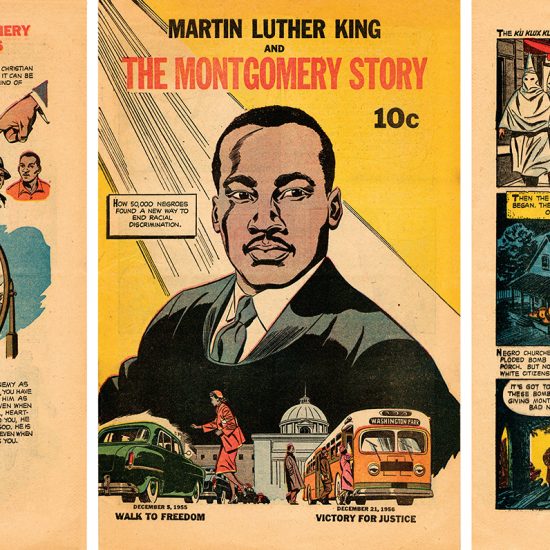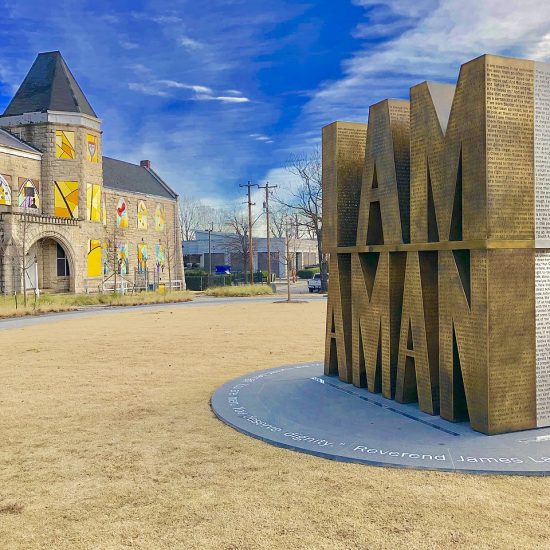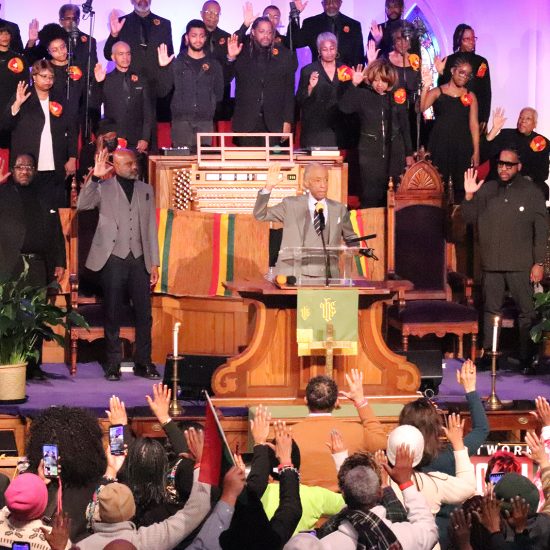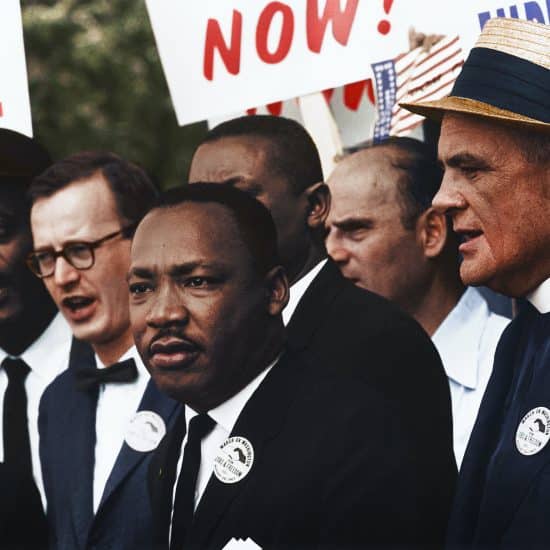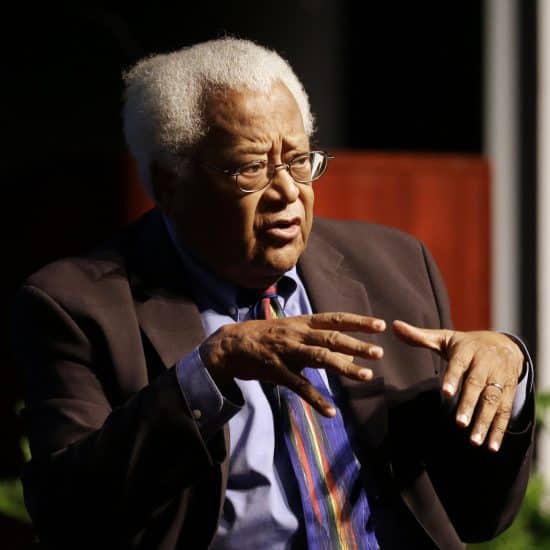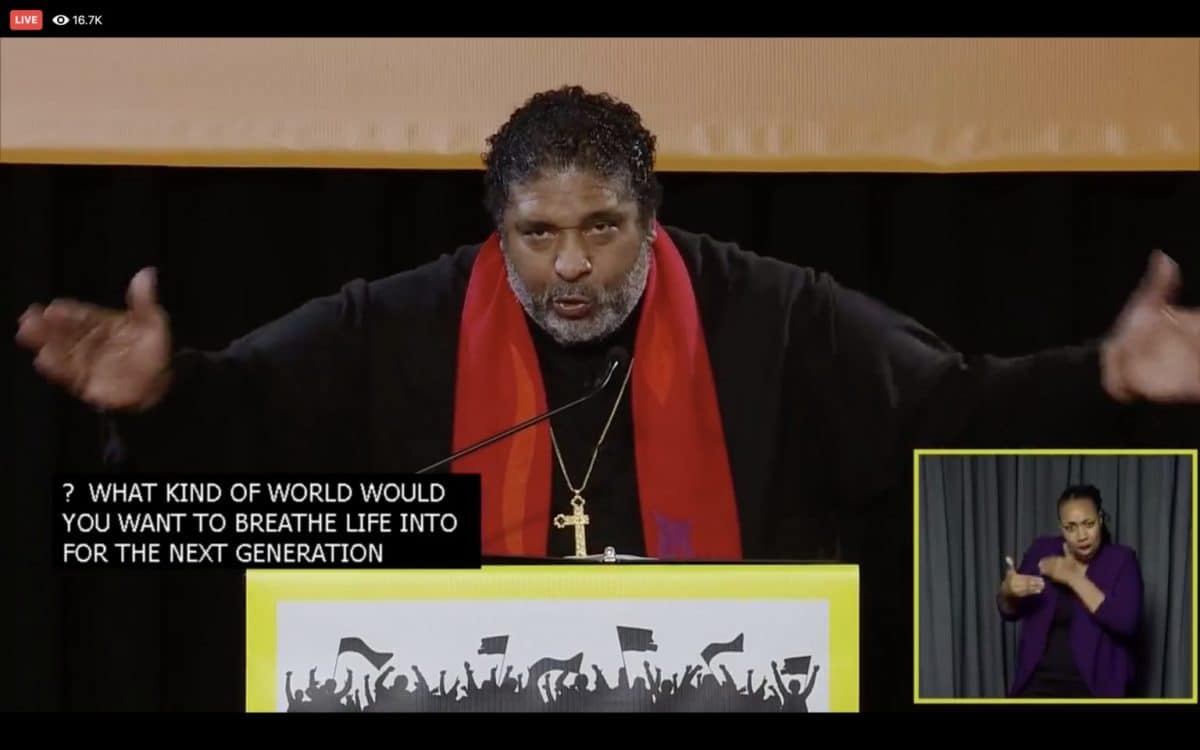
(RNS) — Over the years, throngs of protesters — many of them people of faith — have assembled to remember the March on Washington. This year, the gatherings will both resemble and differ from the first one on Aug. 28, 1963.
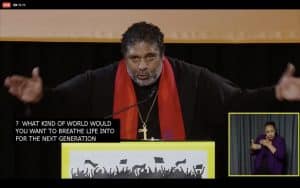
Screengrab as William Barber speaks at the “National Poor People’s Assembly and Moral March on Washington Digital Gathering on June 20, 2020. (Religion News Service)
While there will be renewed speeches for racial justice, more participants will be watching on distant screens Friday than listening in person. Speakers and listeners will be particularly focused on reducing police brutality and protecting and mobilizing voters for the upcoming election.
As groups from the Al Sharpton’s National Action Network to the NAACP to the Movement for Black Lives finalize their plans, some religious leaders may take in all three organizations’ events. Todd Yeary, senior vice president of Jesse Jackson’s Rainbow PUSH Coalition, is one of them.
“The March on Washington was about jobs and freedom,” said Yeary, pastor of a nondenominational church in Baltimore, Maryland.
Now, he said, the 1963 event about economic empowerment and civic engagement is being echoed amid a new political climate.
“It is renewing that call — even with some very fierce headwinds — for everyone to explore the most effective way to make sure that they are able to exercise the franchise, that their vote gets counted and that they continue to engage in the civic process of making sure that our laws and our policies reflect our core values,” he said.
Sharpton’s organization is moving ahead with Friday plans for the Commitment March to feature the families of George Floyd, Breonna Taylor, and Eric Garner — all of whom were killed in police-related incidents — along with attorney Benjamin Crump, Martin Luther King III, clergy, and other civil rights activists. For those who gather in person amid the coronavirus pandemic, mask wearing and thermometer checks will be enforced, Sharpton’s group said in a Monday statement about the event, which is also called the “Get Your Knee Off Our Necks” march.
The event, on the 57th anniversary of the Rev. Martin Luther King Jr.’s “I Have a Dream” speech, will be livestreamed as part of the NAACP’s 2020 Virtual March on Washington, whose schedule also includes Thursday night and Friday night events. William Barber II, co-chair of the “Poor People’s Campaign: A National Call for Moral Revival,” is the scheduled keynote speaker on Friday night.
Also on Friday night, the Movement for Black Lives plans the Black National Convention to “ratify a Black political agenda” shortly after the Democratic and Republican conventions have ended.
Barbara Williams-Skinner, co-convenor of the African American Clergy Network, said she plans to shelter in place and watch events online that day, given that research has shown a disproportionate percentage of people of color have been affected by COVID-19. She acknowledged the risks and said precautions are necessary for an in-person march of any kind amid the health pandemic. But she added that while other 2020 events, such as one by Barber’s Poor People’s Campaign, went virtual, there can be “overwhelming” reasons for gathering in person.
“When the democracy itself is being threatened for the first time in our lives by the president of the United States, where the elections are being undermined,” Williams-Skinner said, “there’s a compelling reason for a march if all of the precautions to save Black lives literally are taken.”
Other clergy are considering participating and holding parallel events to press on with the goals of the first March on Washington, which drew an estimated 250,000 when King, John Lewis, and other activists rose to speak in the shadow of the Lincoln Memorial.
Supporters of Vote Common Good, an organization led by liberal-leaning evangelicals, started a “pilgrimage for racial justice” on Thursday (Aug. 20) from Charlottesville, Virginia, with an aim to conclude their 115-mile trek at the march led by Sharpton.
“The journey to liberation has always been an interracial, generational struggle with clergy at the core — from Dr. King’s Letter in Birmingham Jail, which was addressed to clergy, to today’s pilgrimage to our nation’s capital,” said Sharpton in a statement issued Thursday by the evangelical group.
Leslie Copeland-Tune, chief operating officer of the National Council of Churches, said her ecumenical organization is co-sponsoring a virtual New and Emerging Faith Voices Town Hall on Wednesday evening, as a kickoff prior to the other commemorative events.
“We’re wanting to bring some younger people together to talk about what this moment of racial reckoning means for the church, what they want from the church, want to see from the church and how their faith informs their thinking about all this,” said Copeland-Tune, who said she also plans to take part in some of the other events this week.
Copeland-Tune said she too expects multireligious and multicultural involvement in the March on Washington events, just as there was in the 1960s and as there has been in recent protests decrying racial injustice.
“The racial reckoning hasn’t ended,” she said. “I think the people who got woke are still woke and are looking for ways to show their support and their commitment to making sure that we end some of this, that we end racism.”

